By Type
By Topic
By Year
Press | History
“The Peacemaker” Named by WSJ as One of the Best Political Books of 2022
William Inboden | Dec 12, 2022
Every December the The Wall Street Journal publishes their lists of the best books in various categories. We are so excited that “The Peacemaker: Ronald Reagan, the Cold War, and the World on the Brink” by our own William Inboden was included in the best political books this year!
Inboden’s Washington Post Piece Urges Us to Study Reagan’s Administration to Support Democracies Today
William Inboden | Dec 06, 2022
William Inboden’s piece in the Washington Post details how Reagan’s commitment to international human rights and democracy grew over his presidency and argues that we should look to the leadership of those who amplified the “Third Wave” to support democracy today.
Inboden’s Washington Post Piece Urges Us to Study Reagan’s Administration to Support Democracies Today
William Inboden | Dec 06, 2022
William Inboden’s piece in the Washington Post details how Reagan’s commitment to international human rights and democracy grew over his presidency and argues that we should look to the leadership of those who amplified the “Third Wave” to support democracy today.
George Seay and Will Inboden Discuss “The Peacemaker”
George Seay, William Inboden | Dec 05, 2022
George Seay, Chairman of the Clements Center Board of Advisors, recently hosted Will Inboden, Executive Director of the Clements Center, on his podcast “Seay the Future” to discuss Ronald Reagan’s foreign policy and Will’s new book, “The Peacemaker: Ronald Reagan, the Cold War, and the World on the Brink.”
George Seay and Will Inboden Discuss “The Peacemaker”
George Seay, William Inboden | Dec 05, 2022
George Seay, Chairman of the Clements Center Board of Advisors, recently hosted Will Inboden, Executive Director of the Clements Center, on his podcast “Seay the Future” to discuss Ronald Reagan’s foreign policy and Will’s new book, “The Peacemaker: Ronald Reagan, the Cold War, and the World on the Brink.”
Will Inboden Appears on Morning Joe to Discuss Reagan’s Approach to the USSR
William Inboden | Nov 28, 2022
Clements Center Executive Director Will Inboden appeared on Morning Joe today to discuss his recent release, “The Peacemaker: Ronald Reagan, The Cold War, and the World on the Brink.”
Will Inboden Appears on Morning Joe to Discuss Reagan’s Approach to the USSR
William Inboden | Nov 28, 2022
Clements Center Executive Director Will Inboden appeared on Morning Joe today to discuss his recent release, “The Peacemaker: Ronald Reagan, The Cold War, and the World on the Brink.”
The Wall Street Journal Reviews Inboden’s “The Peacemaker”
Matthew Continetti | Nov 28, 2022
Matthew Continetti reviewed Will Inboden’s new book, “The Peacemaker: Ronald Reagan, the Cold War, and the World on the Brink,” for The Wall Street Journal.
The Wall Street Journal Reviews Inboden’s “The Peacemaker”
Matthew Continetti | Nov 28, 2022
Matthew Continetti reviewed Will Inboden’s new book, “The Peacemaker: Ronald Reagan, the Cold War, and the World on the Brink,” for The Wall Street Journal.
Horns of a Dilemma: How the Gipper Won
William Inboden, Frank Gavin | Nov 25, 2022
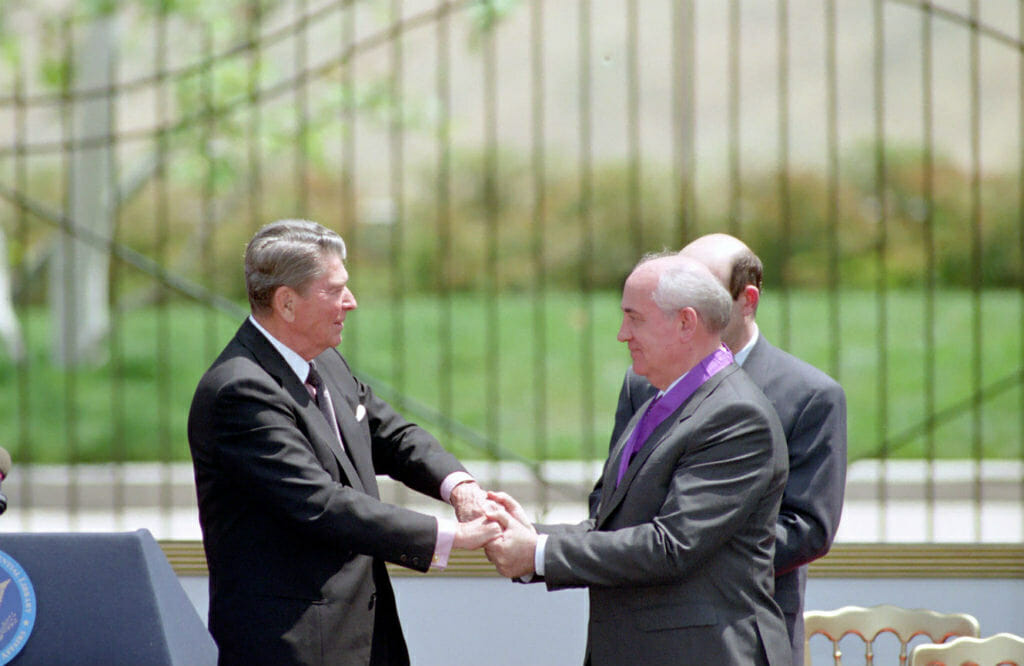
In this week’s Horns of a Dilemma, Texas National Security Review editor-in-chief Will Inboden joins Editorial Board Chair Frank Gavin to discuss Inboden’s new biography of Reagan, Peacemaker: Ronald Reagan, the Cold War, and the World on the Brink. As Inboden points out, many of Reagan’s signature victories, including his pivotal role in defeating the Soviet Union in the Cold War, seem inevitable in retrospect, but at the time, they were often seen as anything but inevitable.
Horns of a Dilemma: How the Gipper Won
William Inboden, Frank Gavin | Nov 25, 2022

In this week’s Horns of a Dilemma, Texas National Security Review editor-in-chief Will Inboden joins Editorial Board Chair Frank Gavin to discuss Inboden’s new biography of Reagan, Peacemaker: Ronald Reagan, the Cold War, and the World on the Brink. As Inboden points out, many of Reagan’s signature victories, including his pivotal role in defeating the Soviet Union in the Cold War, seem inevitable in retrospect, but at the time, they were often seen as anything but inevitable.
Horns of a Dilemma: See Power? Seapower!
Kevin McCranie | Oct 28, 2022
The field of strategy is littered with authors whose works are often-quoted but seldom-read. While Clausewitz is likely the foremost example of such an author, the naval strategists Alfred Thayer Mahan and Sir Julian Corbett are not far behind. In this week’s episode of Horns of a Dilemma, Professor Kevin McCranie of the U.S. Naval War…
To Deter Russia, Look to Reagan
William Inboden | Oct 19, 2022
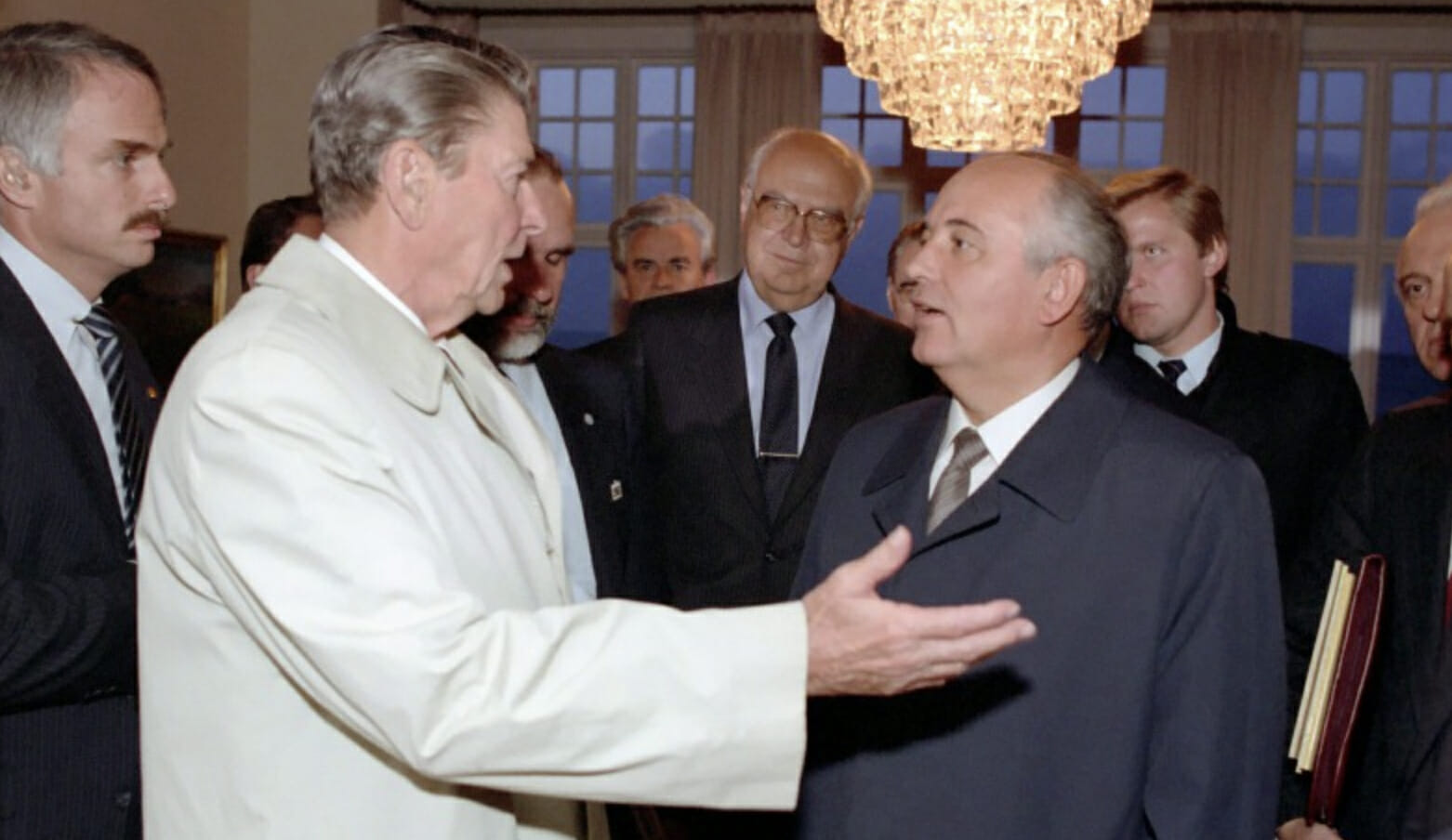
In the National Review, Clements Center Executive Director William Inboden writes that the combination of pressure and diplomacy offers the best way to counter Putin, liberate Ukraine, and avoid nuclear war.
Horns of a Dilemma: A Remembrance of Things Not Actually Past
Katie Stallard | Oct 14, 2022
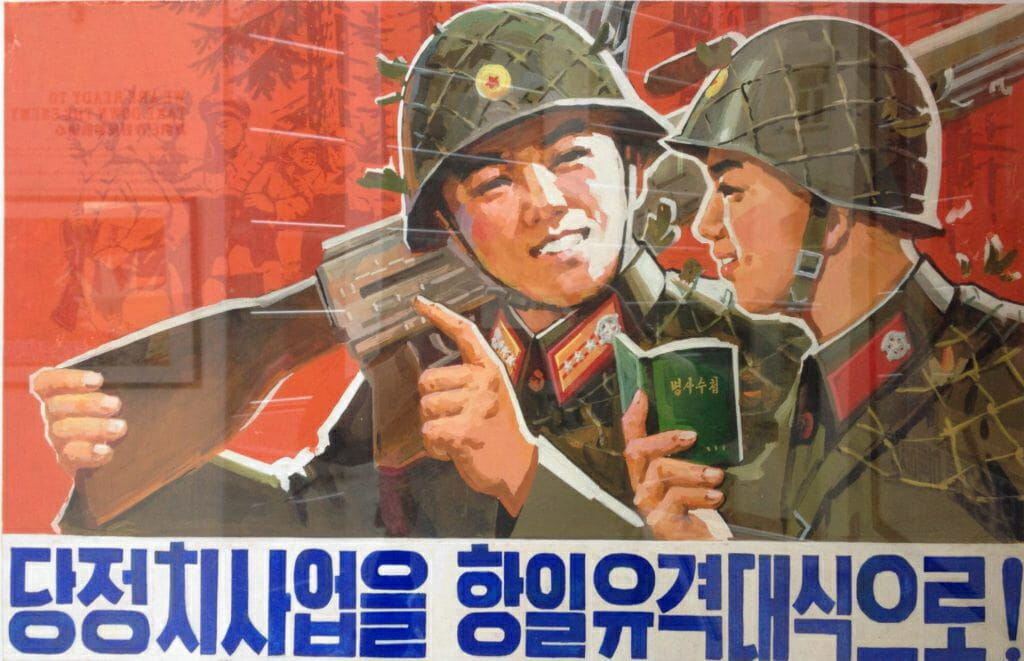
In this week’s episode of Horns of a Dilemma, Katie Stallard, a journalist and scholar, speaks about her book, Dancing on Bones: History and Power in China, Russia, and North Korea. Stallard details how totalitarian regimes use a doctored version of history–especially history regarding World War II–to forcibly shape public remembrance in a way that reinforces the goals of the regime.
H-Diplo Roundtable Discusses “The Reagan Moment”
Jonathan Hunt, Simon Miles | Oct 06, 2022
H-Diplo held a roundtable on “The Reagan Moment: America and the World in the 1980s.” The book, edited by Jonathan Hunt and Simon Miles, originated from a Clements Center conference held in January 2017.
Horns of a Dilemma: Afghan Crucible
Elisabeth Leake | Sep 09, 2022
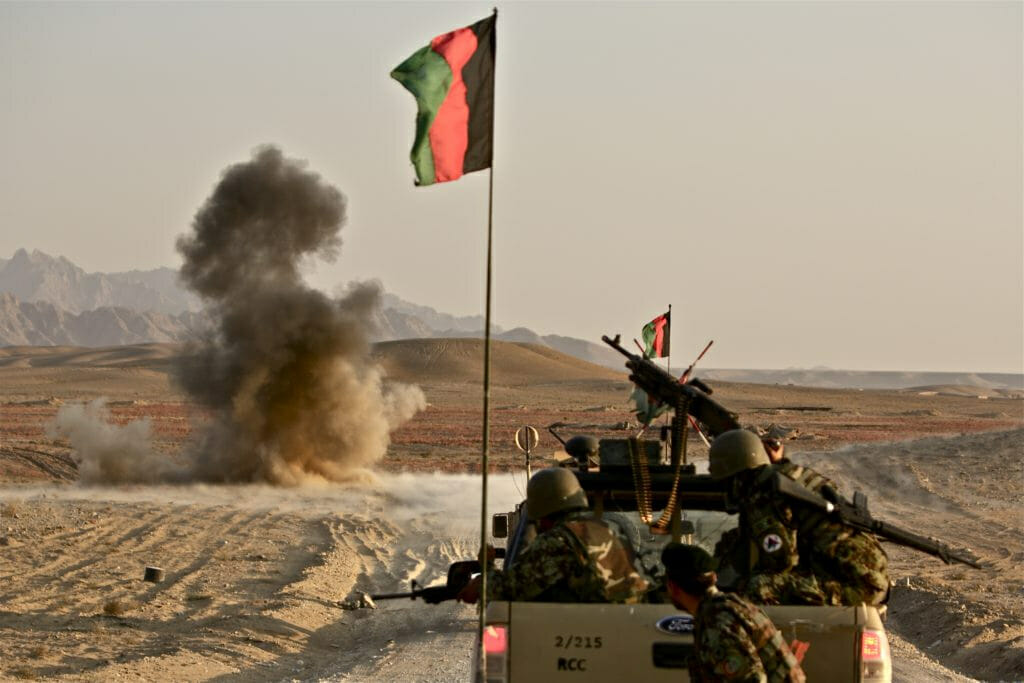
Phrases such as, “history is written by the victors,” while often cycnical, hint at a fundamental truth: Historical events assume different significance depending on the perspective from which they are viewed. In this week’s episode of Horns of a Dilemma, Professor Elisabeth Leake of the Fletcher School at Tufts University discusses her book, Afghan Crucible, which examines the war in Afghanistan from a variety of different historical, political, and geographic perspectives.
Will Inboden and Jeremi Suri pen op-ed honoring Mikhail Gorbachev in The Hill
Will Inboden, Jeremi Suri | Sep 02, 2022
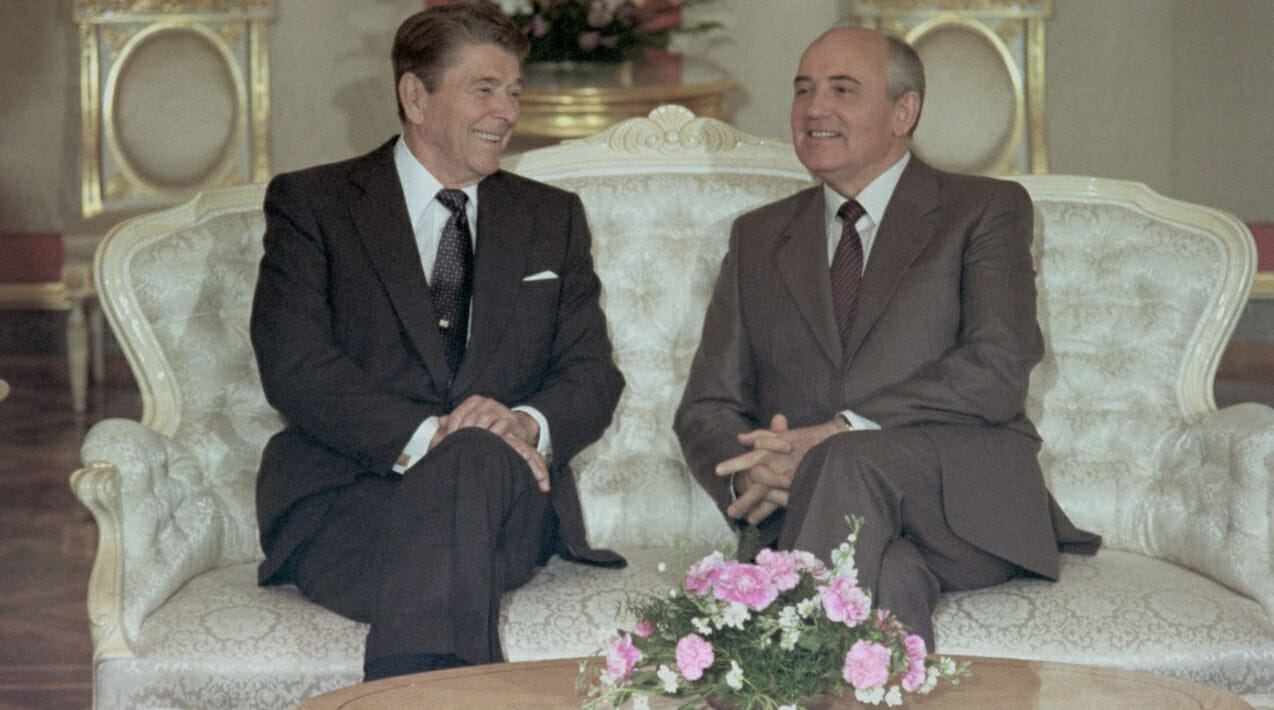
We were very sad to hear of the passing of Mikhail Gorbachev, the last leader of the Soviet Union. Will Inboden, Executive Director of the Clements Center, and Jeremi Suri, the Mack Brown Distinguished Chair for Leadership in Global Affairs at The LBJ School of Public Affairs, penned an op-ed on The Hill about this remarkable man whose role in the “sprint for peace” changed the course of history.
Mark Pomar Interviewed on Rashkin Report About “Cold War Radio”
Mark Pomar | Aug 29, 2022
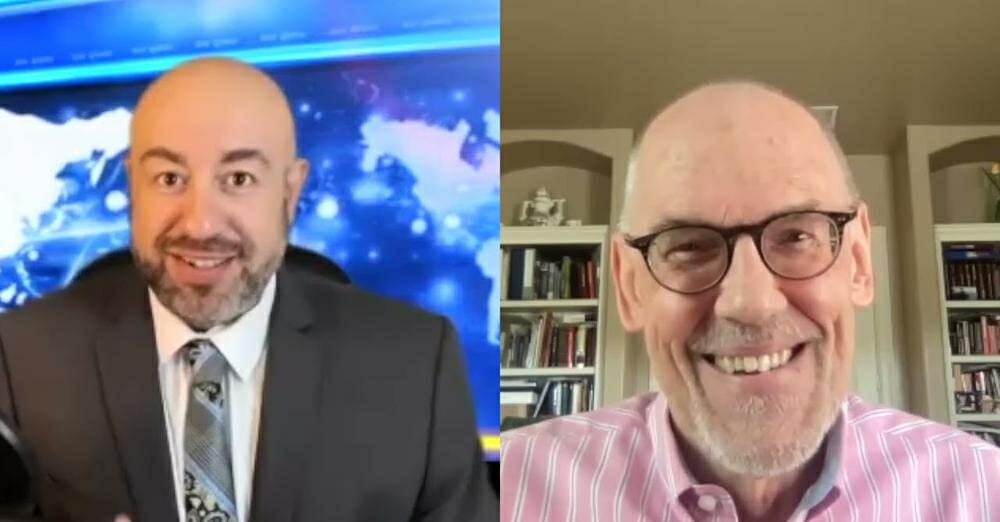
Clements Center Senior National Security Fellow Mark Pomar was interviewed on Rashkin Report about his time with Voice of America and Radio Liberty/Radio Free Europe during the Cold War.
Clements Postdoctoral Fellow William Chou to appear on Jeopardy!
William Chou | Jul 14, 2022

Clements Center Postdoctoral Fellow William Chou will be a contestant on Jeopardy! next Monday, July 18th! Check www.jeopardy.com/watch for local broadcast stations and times. William is a historian of postwar US-Japanese commercial and security relations and a Jeopardy! fan who achieved his lifelong dream of being on the show. We hope you will tune in to cheer for William.
Daniel Samet Reviews Paul Kennedy’s “Victory at Sea”
Daniel J. Samet | Jul 08, 2022

Amy Liu and Ethan Masucol Coauthor Paper on Chinese Filipino Experience During Conflict with China
Ethan Masucol, Amy H. Liu, and Jangai Jap | Jul 06, 2022
Faculty Fellow Amy Liu, former Undergraduate Fellow Ethan Masucol, and Jangai Jap coauthored a new paper, “Islands Apart: Explaining the Chinese Experience in the Philippines”. It explores why, historically and in the present day, the Chinese Filipino community doesn’t experience hostility during times of conflict with China as immigrant communities do elsewhere.
Horns of a Dilemma: History is What States Make of It
Andrew Ehrhardt, Doyle Hodges | Jun 24, 2022
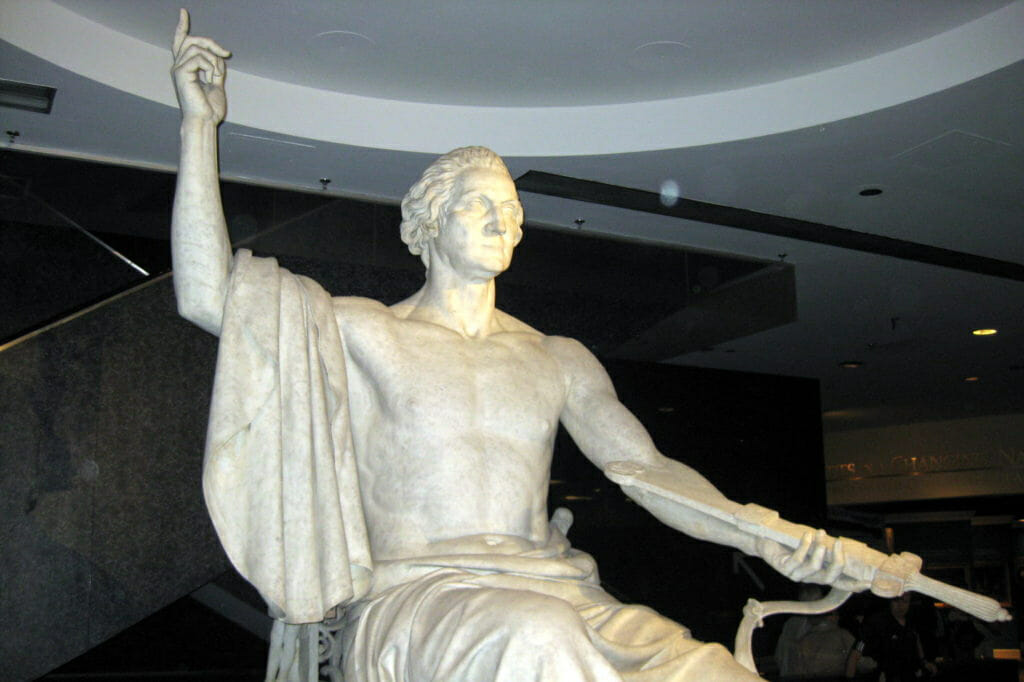
Political scientist Alexander Wendt famously (well, in political science circles anyway) observed of the international system that “anarchy is what states make of it.” In this week’s episode of Horns of a Dilemma, we explore the degree to which this observation is true not only of the international system, but also of the mental constructs that states, leaders, and citizens use to think about the concept of an international system and their place in it.
Horns of a Dilemma: Word Politics
Rachel Hoff, Will Inboden | Jun 07, 2022

Forty years ago this week, U.S. President Ronald Reagan spoke to the British Parliament in Westminster. In this week’s episode of Horns of a Dilemma, Clements Center Executive Director (and TNSR Editor in Chief) Will Inboden sits down with Rachel Hoff, policy director of the Ronald Reagan Presidential Foundation and Institute, to discuss the speech and its legacy.
Horns of a Dilemma: War Crime and Punishment
Derek Jinks | May 20, 2022
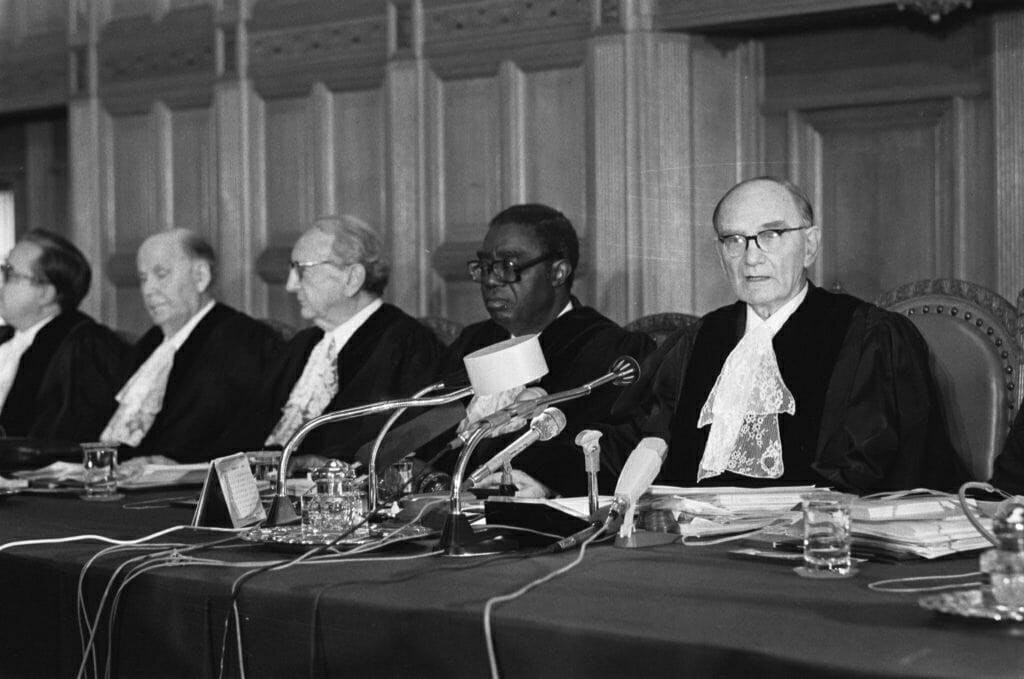
In this week’s episode of Horns of a Dilemma, University of Texas Law School Professor Derek Jinks discusses the legal landscape that developed after World War II, which defines the modern concept of war crimes.
Comparative Strategy publishes Tommy Jamison’s new article on Naval Power in Industrial Warfare
Tommy Jamison | May 11, 2022
Former Clements Predoctoral Fellow Tommy Jamison, currently an Assistant Professor in the Defense Analysis Department at the Naval Postgraduate School, published a new article in Comparative Strategy.
Horns of a Dilemma: Foreword to Victory: Paul Kennedy on the Naval History of World War II
Paul Kennedy | May 06, 2022

In this episode of Horns of a Dilemma, historian Paul Kennedy speaks about his new book, Victory at Sea: Naval Power and the Transformation of the Global Order in World War II.
Intelligence and National Security publishes Alexandra Sukalo’s new article on Soviet Political Police in Post-WWII Europe
Alexandra Sukalo | May 04, 2022
Clements Postdoctoral Fellow Alexandra Sukalo’s article, “Learning to Think and Talk Like the Locals: The Soviet Political Police’s Efforts to Adapt in Lithuania and Ukraine, 1944-1949”, was recently published in Intelligence and National Security. The author has a limited number of free access codes. If you need one to read the article please email [email protected].
Daniel Samet reviews Martin Indyk’s “Master of the Game: Henry Kissinger and the Art of Middle East Diplomacy”
Daniel J. Samet | Apr 25, 2022
Clements Graduate Fellow Daniel J. Samet reviewed Martin Indyk’s new release, “Master of the Game: Henry Kissinger and the Art of Middle East Diplomacy” for Not Even Past.
Horns of a Dilemma: Your Orders are not on Paper, Changing Political Order in the Long Twentieth Century
Patrick Cohrs | Apr 22, 2022
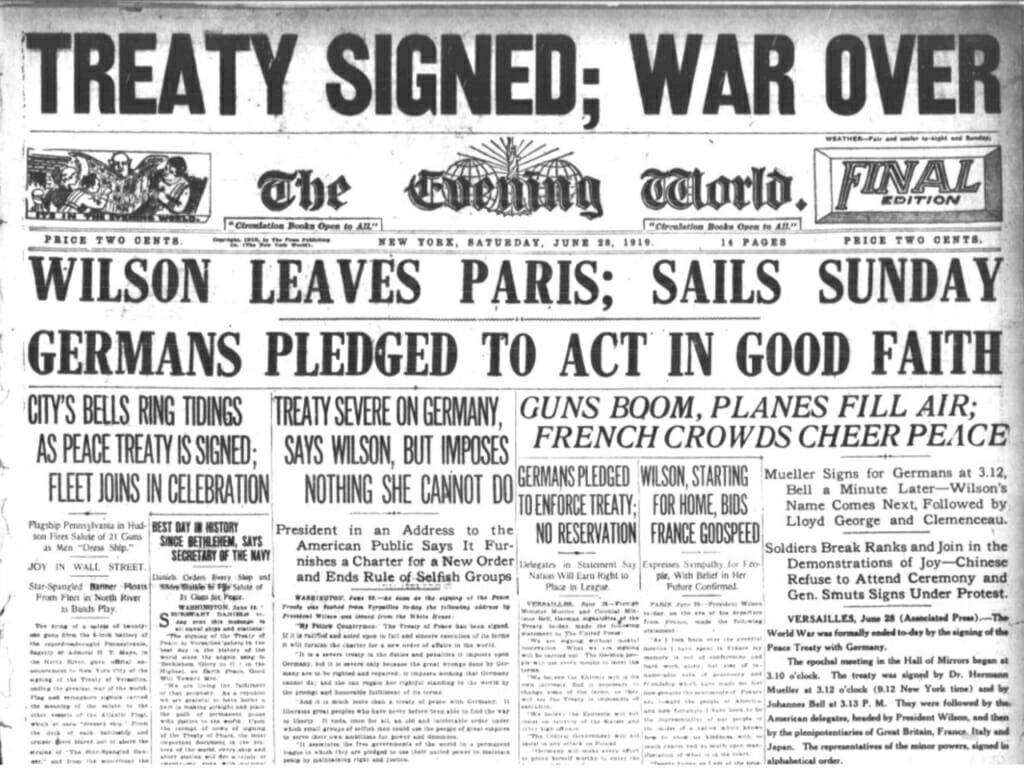
In this week’s episode of Horns of a Dilemma, University of Florence professor Patrick Cohrs examines how the rules of political order may change.
Horns of a Dilemma: Second Thoughts About the Third World
Mark Lawrence | Apr 15, 2022
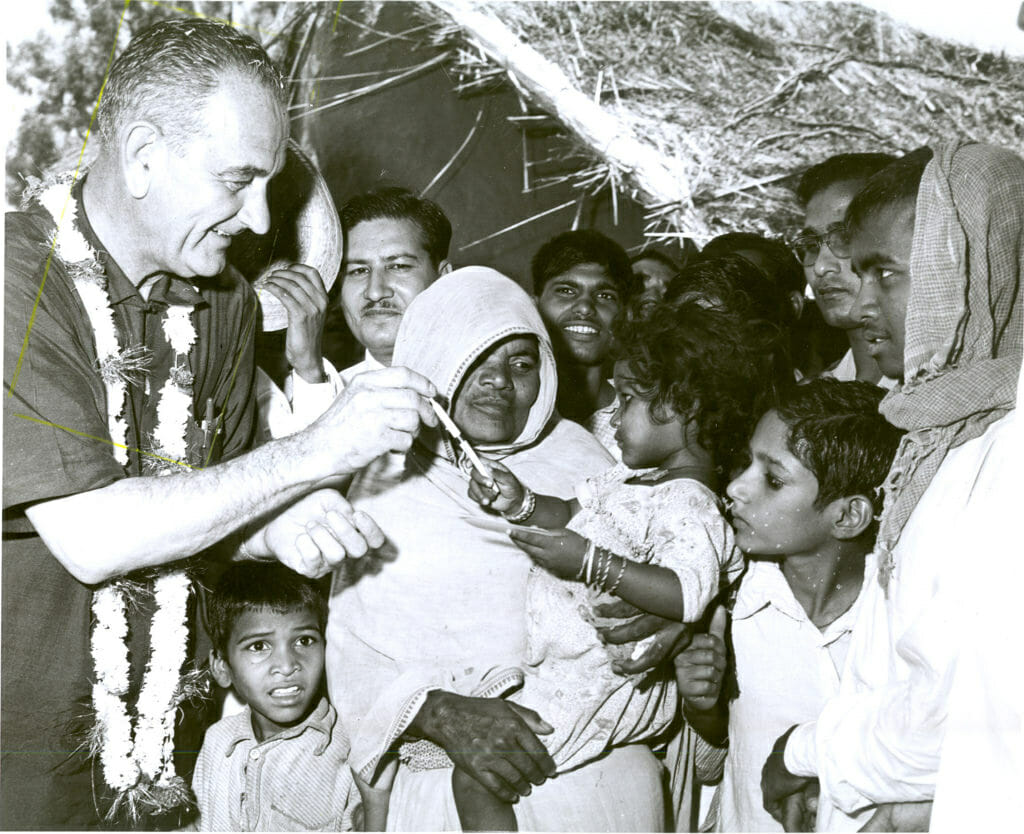
Mark Lawrence, argues in his new book, The End of Ambition: The United States and the Third World in the Vietnam Era, that the war in Vietnam marked dramatic re-thinking of ambitions in U.S. foreign policy.
Will Inboden and Nick Romanow on what the Trans-Siberian Pipeline crisis can teach us about competing with China today
Will Inboden, Nick Romanow | Apr 05, 2022
Clements Executive Director Will Inboden and alumnus Nick Romanow published a commentary on War on the Rocks re what can be learned from Trans-Siberian Pipeline dispute when it comes to managing alliances while confronting a hostile great power.
Andrew Ehrhardt on why national security scholars should be be wary of “applied historicism”
Andrew Ehrhardt | Mar 29, 2022





